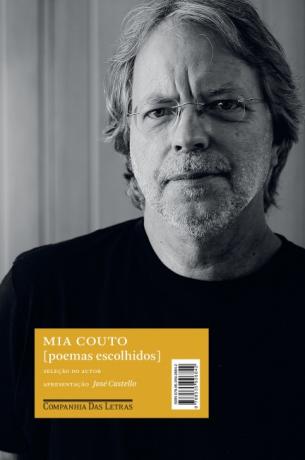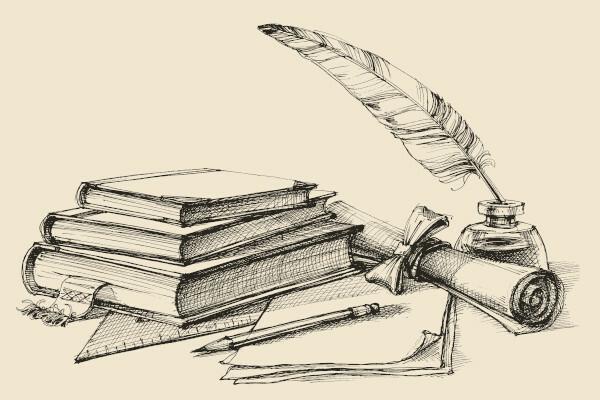Gustave Flaubert, French writer, was born on December 12, 1821. At age 16, he wrote his first autobiographical work — memories of a madman. He started law school but, due to health problems, did not complete his degree. He then began to devote himself exclusively to literature.
Your big success is Madame Bovary, a book published in 1857 that led the writer to be prosecuted for immorality. With this work, Flaubert, who died on May 8, 1880, opened the rfrench realism, characterized by texts marked by objectivity, anti-romanticism, psychological analysis and sociopolitical criticism.
Read too: How was the rrealism in Brazil?
Gustave Flaubert Biography

Gustave Flaubert was born on December 12, 1821, in Rouen, France. He was the son of the chief surgeon at the Hôtel-Dieu hospital in Rouen. In 1836, he met Élisa Schlésinger (1810-1888), a married woman older than him, for whom he nurtured, for years, a
platonic love. Two years later, at just 16, he wrote his first autobiographical work — memories of a madman.In 1842, the writer studied law in Paris, but in 1844 he was attacked by a epileptic seizure. Because of this, he returned to his father's home and devoted himself exclusively to literature. When, in 1846, he lost his father and also his sister, who died in childbirth, Flaubert, with his mother, was responsible for raising his niece. From 1846 to 1854, the novelist had a loving relationship with the poet Louise Colet (1810-1876).
Do not stop now... There's more after the advertising ;)
Madame Bovary, a novel that took five years of the author's life, was published for the first time in serials, during the year 1856. The work was censored; and Flaubert, sued for immorality. However, the writer was acquitted, and his book became a great success. From then on, the novelist became friends with the writer George Sand (1804-1876), who wrote under a pseudonym, and was a kind of mentor to the young writer Guy de Maupassant (1850-1893).
At the end of his life, Flaubert faced financial difficulties. On the one hand, for helping her niece's husband, who was in debt; on the other, due to the failure of his last works. Thus, died on May 8, 1880, probably due to a stroke (stroke) or cerebral hemorrhage.
Gustave Flaubert's literary style
The writer Gustave Flaubert is the main representative of realism French. His works, therefore, have the following characteristics:
Objectivity
anti-romanticism
No idealization
sociopolitical criticism
psychological analysis
autobiography
critical observation of reality
Documentary character
Rationalism
Read too: Naturalism – the most extreme current of realistic movement
Works by Gustave Flaubert
![Cover of the book “Madame Bovary”, by Gustave Flaubert, published by Companhia das Letras. [1]](/f/4eff1f15f994fb442562dbc7d711a81f.jpg)
passion and virtue (1837)
memories of a madman (1838)
November (1842)
Madame Bovary (1857)
salambo (1862)
sentimental education (1869)
The temptations of St. Anthony (1874)
three stories (1877)
Bouvard and Pecuchet (1881)
Madame Bovary
Madame Bovary it's theromance better knownof Flaubert. The work inaugurated realism in France, and its publication was accompanied by the scandal caused by the censorship it received and which led to legal proceedings against its author. Flaubert was accused of immorality for creating an adulterous protagonist, dissatisfied with her marriage to Charles Bovary, a mediocre individual:
“By dint of being diligent, he managed to always keep average grades in the class; he once even earned a distinction in Natural History. But at the end of the 3O This year, his parents took him out of college to send him to study medicine, convinced that he could reach a bachelor's degree without assistance.
[...]
Charles then began to study again and prepared all the subjects for his examination, learning by heart all the questions that could be asked of him. She managed to pass on a reasonable note. What a happy day for your mother! There was a great dinner.”
Finally graduated in Medicine, Charles Bovary marries, out of interest, a widow, Mrs. Dubuc, who soon dies. Contrary to what Charles' mother believed, the widow had no fortune. Charles then marries Emma. she is a young girl romantic, dreamy, and stay disappointed with married life, so different from what she imagined:
“Would that misery last forever? Was there no way to escape him? However, she thought she was worth as much as all the others who lived happily! She had seen in Vaubyessard duchesses with the thickest waist and the most vulgar manners, and she railed against the justice of God; she leaned her head against the walls to cry; she envied the tumultuous existences, the masked nights, the insolent pleasures with all the delusions that must bring about what she did not know.
THE husband's lack of ambitionirritates Emma Bovary, as she needs a less ordinary, more luxurious and exciting life. The situation ends up making Emma ill, due to boredom. The husband decides to change his air, for the good of the wife. When they move from Tostes, Emma is already pregnant. Thus, Berthe, the couple's daughter, is born in the village of Yonville-l'Abbaye. Motherhood only complicates Emma's emotional state, bored and depressed..
Then she falls in love withLéon Dupuis, a clerk, who, like Emma, can't stand reality. However, the relationship does not materialize, and Léon decides to leave for Paris. soon she findsRodolphe Boulanger, which seduces her. The townspeople start to comment, but the husband ignores the betrayal. Lastly, the lover abandons emma, who wanted to run away with him. She, once again, falls into depression.
After meeting Léon again, the two start alove relationship, but she gets tired of her lover. So, unhappy and deep in debt, Emma Bovary has no way out and decides to commit suicide. Charles then finds his letters, discovers his extramarital affairs and dies sometime later:
“After everything was sold, there were twelve francs and seventy-five cents left, which were used to pay for the trip for the girl Bovary to her grandmother's house. The poor woman died that same year, as grandfather Rouault was paralyzed, it was an aunt who took care of her. This aunt is poor and sends the little one to work in a spinning mill to earn a living.”|1|
Thus, the romancedeconstructs romantic idealization when showing a wedding bourgeois in which reality is nothing more than a monotonous daily life. Furthermore, the work seems to condemn the escape from reality undertaken by the romantics, who, by selling dreams, do not prepare their readers for reality.
see more: The Posthumous Memoirs of Bras Cubas – founding work of Brazilian realism
Phrases by Gustave Flaubert
Next, let's read some sentences by Gustave Flaubert, taken from his Dictionary of made ideas, translation by Cristina Murachco:
"Butchers are terrible in times of revolution."
"Cotton is especially useful for the ears."
"Some [animals] are smarter than certain men."
"There are always two winners, the one who hits and the one who catches."
“One should always call reactionaries crabs.”
"A little science takes us away from religion and a lot of science brings us closer to it."
"True pain is always contained."
"Hostilities are like oysters, they must be open."
"When you don't have imagination, you should denigrate it in others."
Note
|1|Translation by Fernanda Ferreira Graça.
Image credit
[1] Company of Letters (reproduction)
by Warley Souza
Literature teacher


